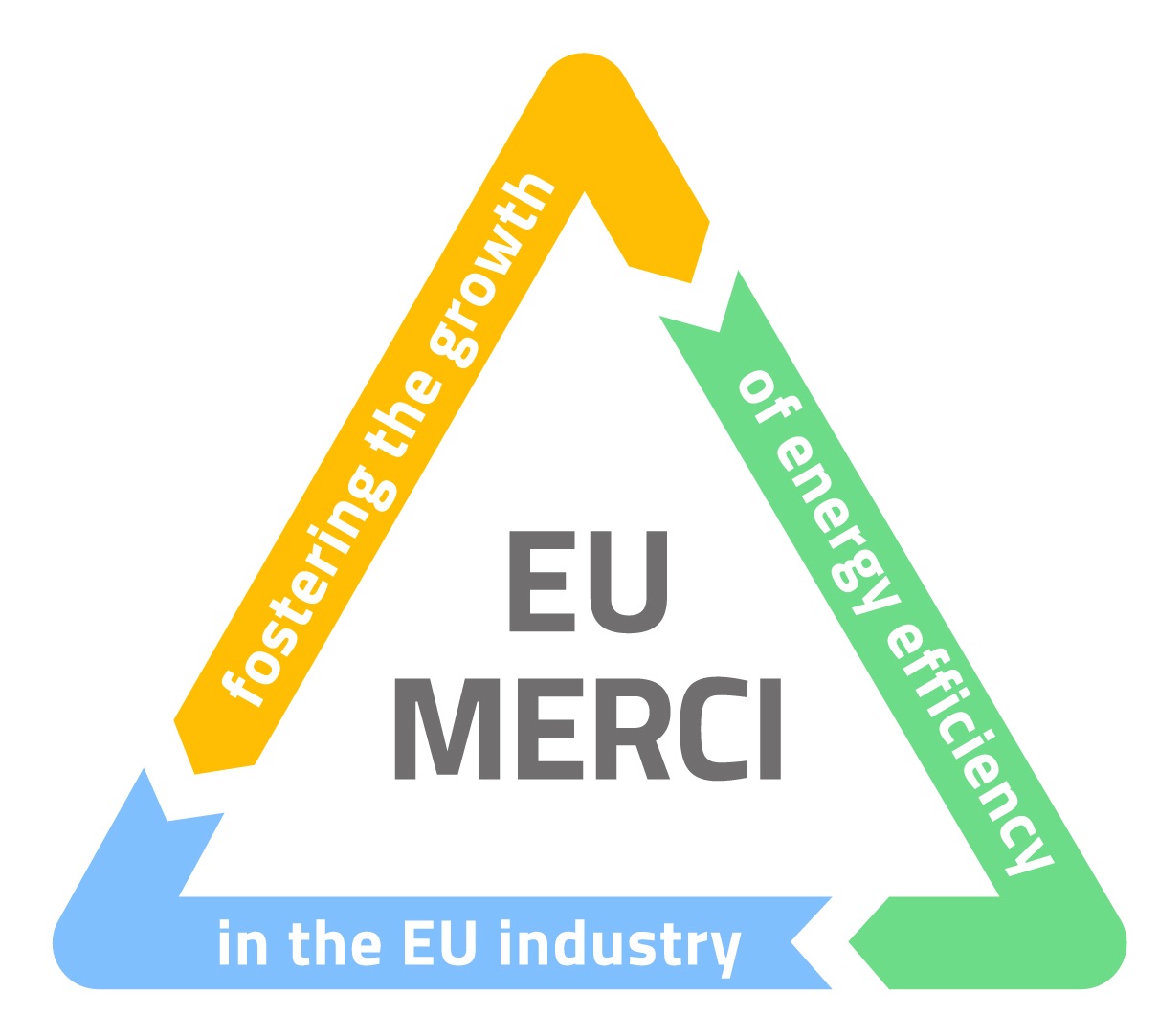The final conference of the EU MERCI project disseminated the final results of the project and highlighted some of the work that EU MERCI stakeholders have been doing in this field.
The first section of the conference from 10:00 to 11:40, introduced the general aims and objectives of EU MERCI, and Marcus Hoffman from AEA presented the methodologies and processes used to derive the project outcomes. This was followed by a number of project partners, i.e. RSE, FIRE, KAPE and JIN presenting the key results and findings from the EU MERCI project, including the country analysis, the EIEEP platform and the factsheets.
The next section focused on EU policies and financing related to energy efficiency. A key outcome of the EU MERCI project was the identification of ‘Good Practices’ of energy efficiency implementations. The speakers in this section discussed some of the challenges associated with the implementation of energy efficiency initiatives, as well as the role policy and the financial sector can have in overcoming some of these barriers.
The next section focused on the specific needs and trends of energy efficiency in industry. The first two speakers, Maurizio Notarfonso and Grig Moldoveanu focused on the outcomes of the validation process of the EU MERCI process, to highlight their perspective on the “Good Practices” identified as part of the EU MERCI project. The following presentations demonstrated some of the tools that have been developed by different projects in EU member states to address some of these needs, such as the “Investor Ready Energy Efficiency certification” developed by ICP, as well as the biorefinery pilots tested by the Agrimax project. Finally, Claudio Zagano from RSE presented the case for the Italian industry, highlighting some country specific trends and potential for improvement of the Italian White Certificate Scheme.
The final section of the conference focused on the perspective of industry on the development and implementation of energy efficiency measures. The multi-utility HERA presented some of the challenges they faced in making energy efficiency investments and some examples of successful implementations. Next, the Romanian energy consultancy SERVELECT presented the case for the Romanian industry, highlighting case studies and barriers of implementing energy efficiency measures form their customers. This was followed by two presentations on the food sector. First the federation SEVT presented the LIFE FOODPRINT Project, which aims to evaluate the carbon footprint of the food industry in Greece and identify strategies to reduce the footprint. The second presentation was from the Italian energy consultancy FEDABO, highlighting a successful case study of using energy efficient refrigeration systems.
The conference was concluded with a presentation of previous speakers, Clemes Rohde from ISI Frauenhofer, Margherita Cumani from HERA, Fotini Salta from SEVT, as well as Rod Janssen, an independent expert working for the Energy Efficiency in Industrial Processes platform. The panel was chaired by Dario Di Santo. The panel was asked to discuss what is required to increase the take-up of energy efficiency measures in industry with further questions and comments from audience participants.
The collected feedback forms demonstrated that participants were generally very satisfied with the conference and are interested in learning more about the EU MERCI project and its outcomes in the future.
Global Industrial Energy Efficiency Accelerator (GIEEA), Myles McCarty – Carbon Trust
The EU-MERCI project: results and outcomes so far, Simone Maggiore – RSE
The selection of industrial energy efficiency “Good Practices”, Marcus Hofmann – Austrian Energy Agency (AEA)
“European Industrial Energy Efficiency good Practices (EIEEP) platform”, Anna Realini – RSE & Livio De Chicchis – FIRE
Country analysis: the potential and ways of fostering of energy efficiency in industry, Wojciech Stańczyk, Paweł Śnitko – KAPE S.A.
A review of EU policies supporting Energy Efficiency in Industry and recommendations and factsheets for external stakeholders, Vlasios Oikonomou – JIN
Support to energy efficiency in industry through the Horizon 2020 Energy Efficiency Calls, Silvia Vivarelli – EASME
De-Risking Energy Efficiency Investments Project (2016-2017), Clemens Rohde – EEFIG
The challenges of decarbonising industry in a decarbonising Europe, Hans De Keulenaer – Leonardo Energy
Financing Energy Efficiency Focus on Green Bonds, Nick Harris, Green Finance Lead – The Carbon Trust
The result of the validation in the agrifood industry, Maurizio Notarfonso – Federalimentare
Results from the validation of the “Good Practices” by industrial stakeholders in Romania, Grig Moldoveanu – ENERO
The role of Investor Confidence Project, Quitterie de Rivoyre – ICP Europe Project Manager
Agri & food waste valorisation co-ops based on flexible multifeedstocks biorefinery processing technologies for new high added value applications, Christine Grabler – Food Research Institute Austria
A bottom-up study based on the analysis of Italian white certificates data, Claudio Zagano – RSE
Promotion and development of energy efficiency in process industry, Margherita Cumani – Hera Group S.p.A
Practical approaches of energy efficiency in Romanian industry, Andrei Ceclan – Servelect
The LIFE FoodPrint project: Α toolbox for the improvement of Food Industry environmental performance, Fotini Salta – SEVT
Energy Efficiency opportunities in the Agri-Food Sector: a success case in using efficient refrigeration systems, Matteo Locati – FEDABO





















































